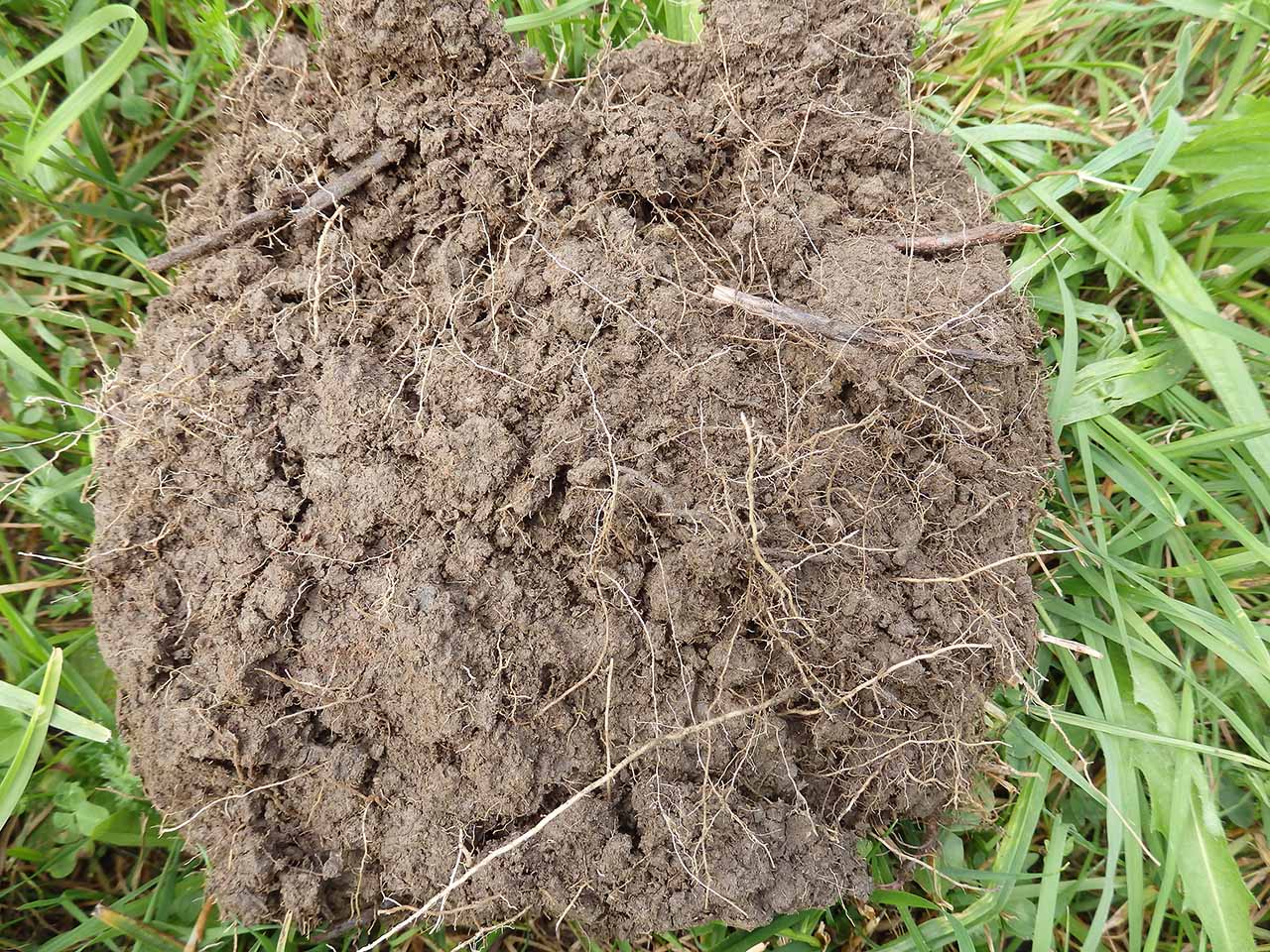The most important function of the soil organisms in the grassland ecosystem is the breakdown of organic substances and the return of the nutrient elements they contain into the respective material cycles. The performance of soil organisms is determined by the local environmental conditions (soil properties, climate) and the food supply.
Most soil organisms prefer loose, well-ventilated, warm, moderately acidic to neutral (pH 5.0-7.0), nutrient-rich, fresh soils. For soil organisms, plant roots are a constantly flowing source of food. A high root mass and intensive root growth therefore promote soil life. A sufficiently high and continuous supply of energy- and nutrient-rich food is crucial for high biological activity in the soil.
This is achieved through regular fertilization with various commercial fertilizers (manure, compost, liquid manure) in small quantities during the growing season.









